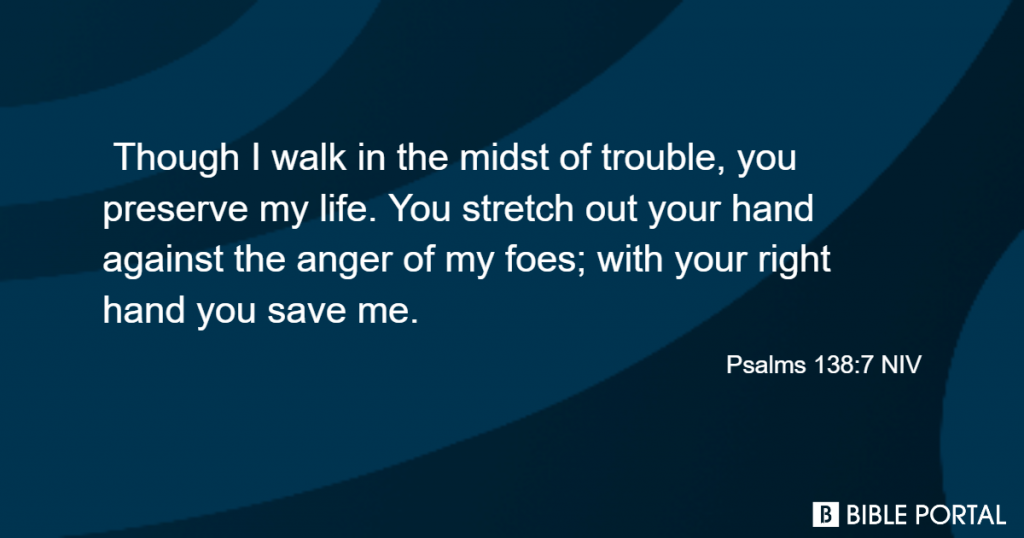Here David declares the sense in which he looked flint God would act the part of his preserver — by giving him life from the dead, were that necessary. The passage is well deserving our attention for by nature we are so delicately averse to suffering as to wish that we might all live safely beyond shot of its arrows, and shrink from close contact with the fear of death, as something altogether intolerable.
On the slightest approach of danger we are immoderately afraid, as if our emergencies precluded the hope of Divine deliverance. This is faith’s true office, to see life in the midst of death, and to trust the mercy of God — not as that which will procure us universal exemption from evil, but as that which will quicken us in the midst of death every moment of our lives; for God humbles his children under various trials, that his defense of them may be the more remarkable, and that he may show himself to be their deliverer, as well as their preserver.
In the world believers are constantly exposed to enemies, and David asserts, that he will be safe under God’s protection from all their machinations. He declares his hope of life to lie in this, that the hand of God was stretched out for his help, that hand which he knew to be invincible, and victorious over every foe.
And from all this we are taught, that it is God’s method to exercise his children with a continual conflict, that, having one foot as it were in the grave, they may flee with alarm to hide themselves under his wings, where they malt abide in peace. Some translate the particle אף, aph, also, instead of anger, reading —thou wilt also extend over mine; enemies, etc. But I have followed the more commonly received sense, as both fuller and more natural.
